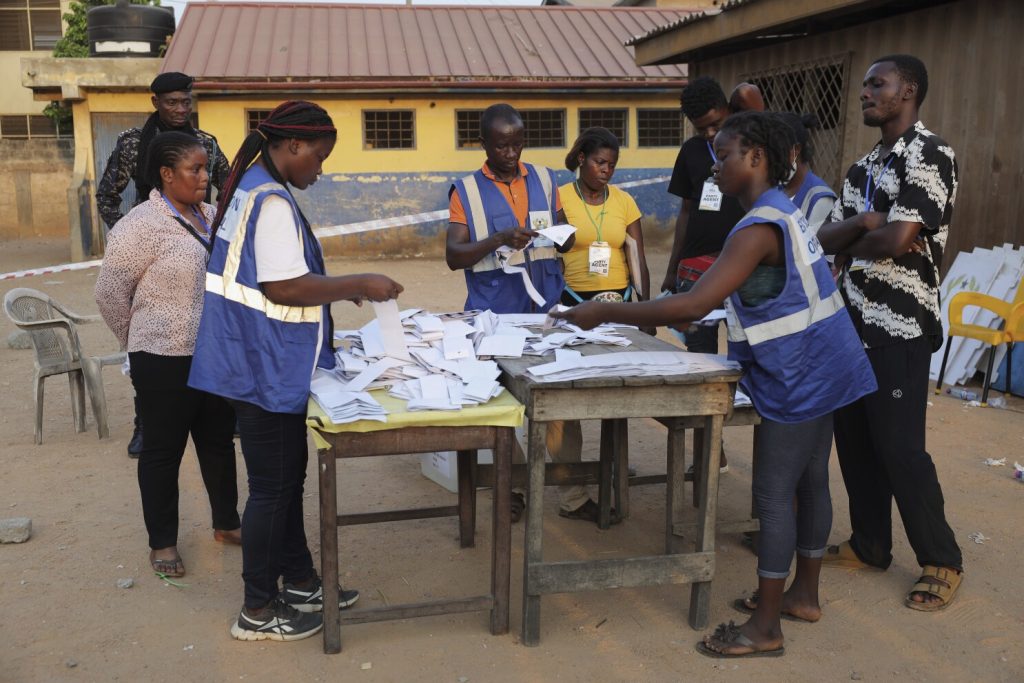Ghana began counting votes on Saturday after a closely contested presidential election, with Vice President Mahamudu Bawumia battling former president John Mahama with voter frustration over economic hardships.
While the election was largely peaceful, police reported two fatalities in separate incidents, casting a shadow over the process.
Voters are choosing a successor to President Nana Akufo-Addo, who is stepping down after two terms. Polling stations closed at 1700 GMT, and preliminary results are expected early Sunday, with official tallies anticipated by Tuesday.
Ghana’s economy took centre stage in the election. Once considered one of Africa’s most stable economies, the country has grappled with soaring inflation, a depreciated currency, and a $3 billion IMF bailout after a debt default.

Bawumia, a UK-trained economist, campaigned on stabilising the economy and digitalising services, while Mahama promised to reset the nation, including renegotiating the IMF deal and creating a 24-hour economy.
Both candidates hail from Ghana’s north, a key battleground traditionally leaning toward Mahama’s National Democratic Congress (NDC). Mahama, who led Ghana from 2012 to 2017, is looking for a political comeback after losing twice to Akufo-Addo.
Despite signs of economic recovery, many Ghanaians remain discontent. Inflation has eased from over 50% to 23%, but the cost of living, job scarcity, and illegal gold mining have fuelled dissatisfaction.
The ruling New Patriotic Party (NPP) aims for an unprecedented third term, touting its “Break the 8” slogan, but faces strong criticism over its economic record.
Meanwhile, northern Ghana faces rising threats from spillover conflicts in neighbouring Burkina Faso and Niger, adding to the stakes in this election.
As ballot counting continues, Ghana awaits to see whether its electorate will opt for continuity or a change in leadership to address its mounting challenges.


